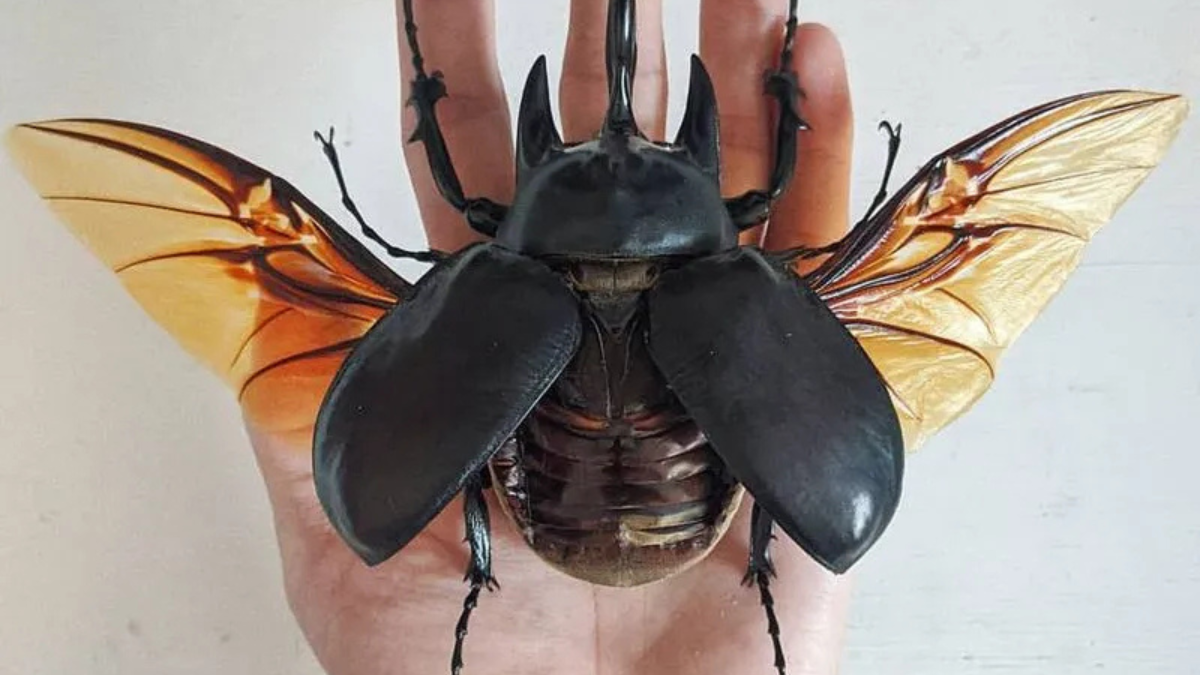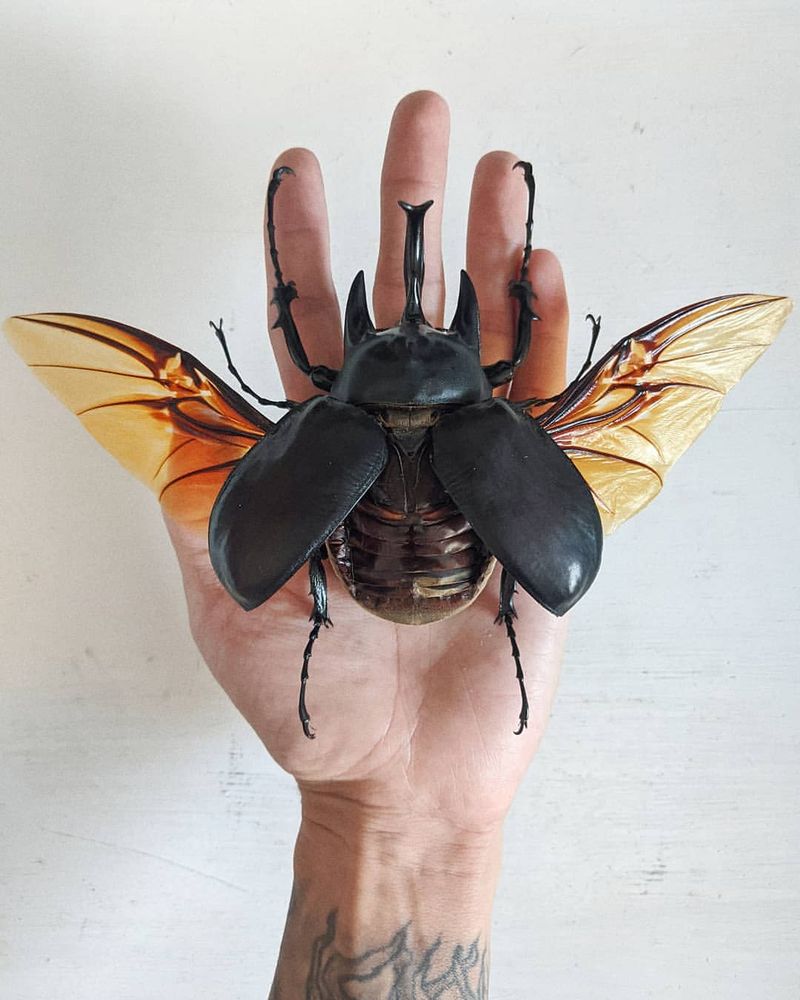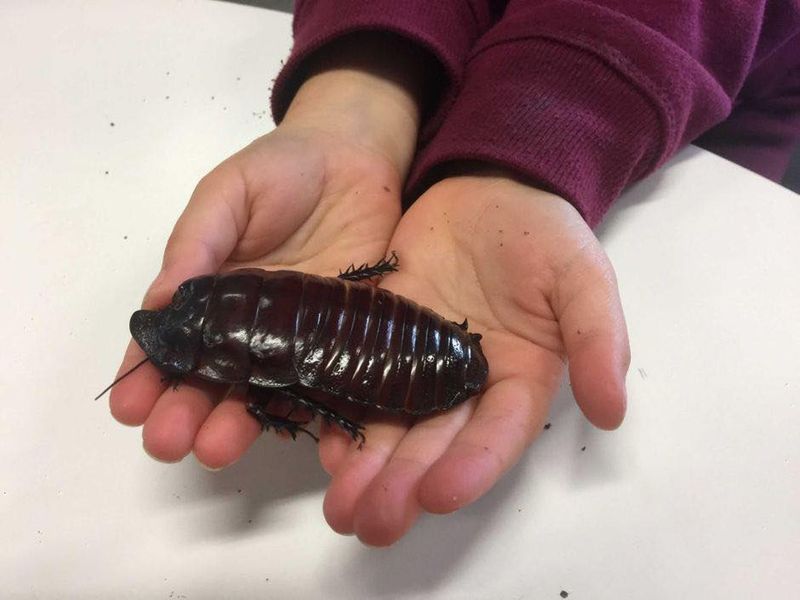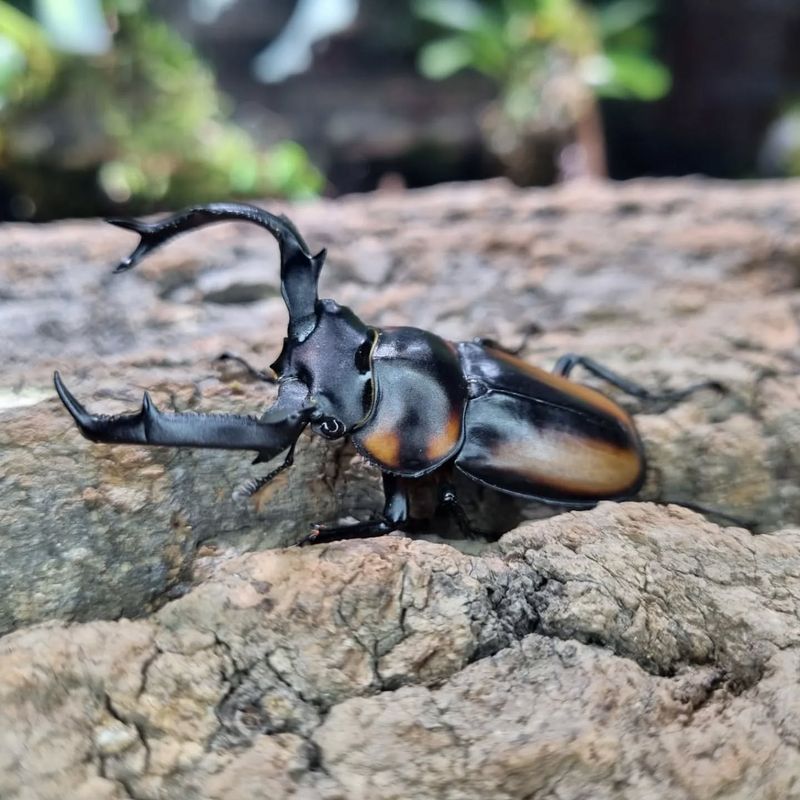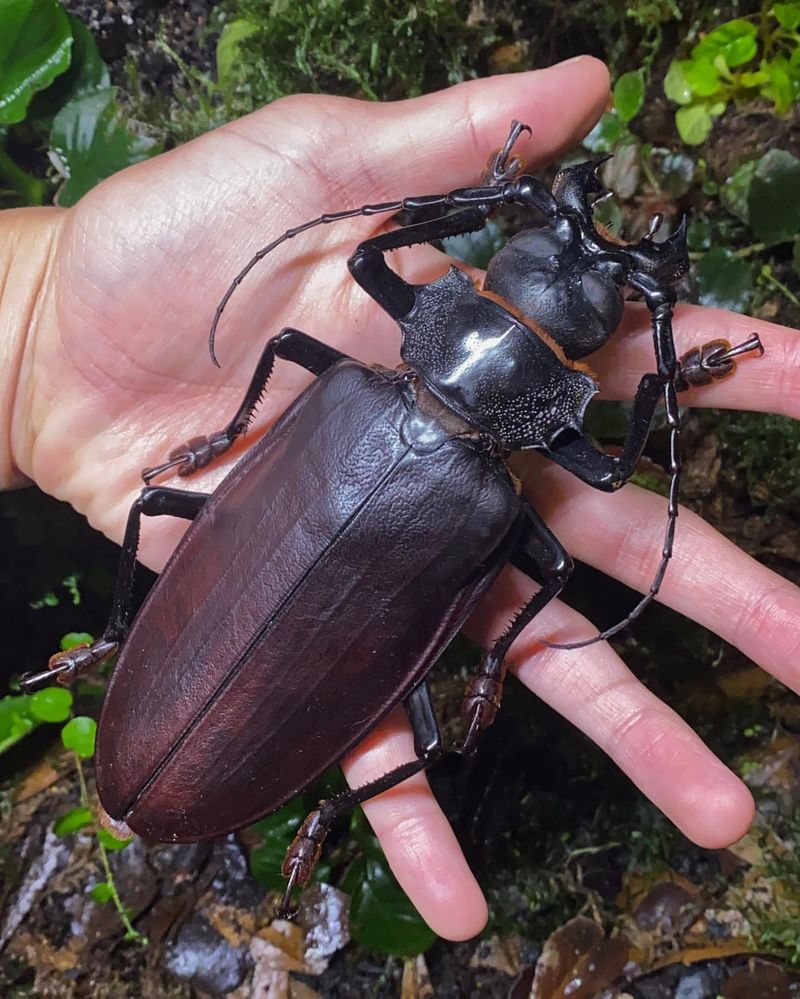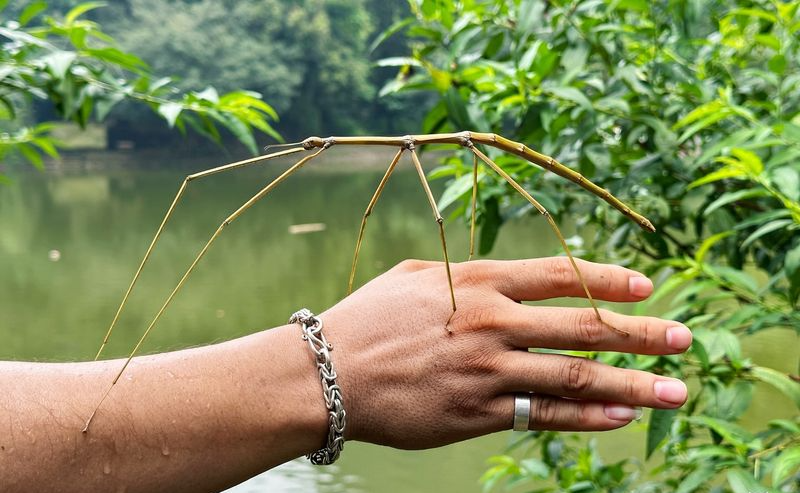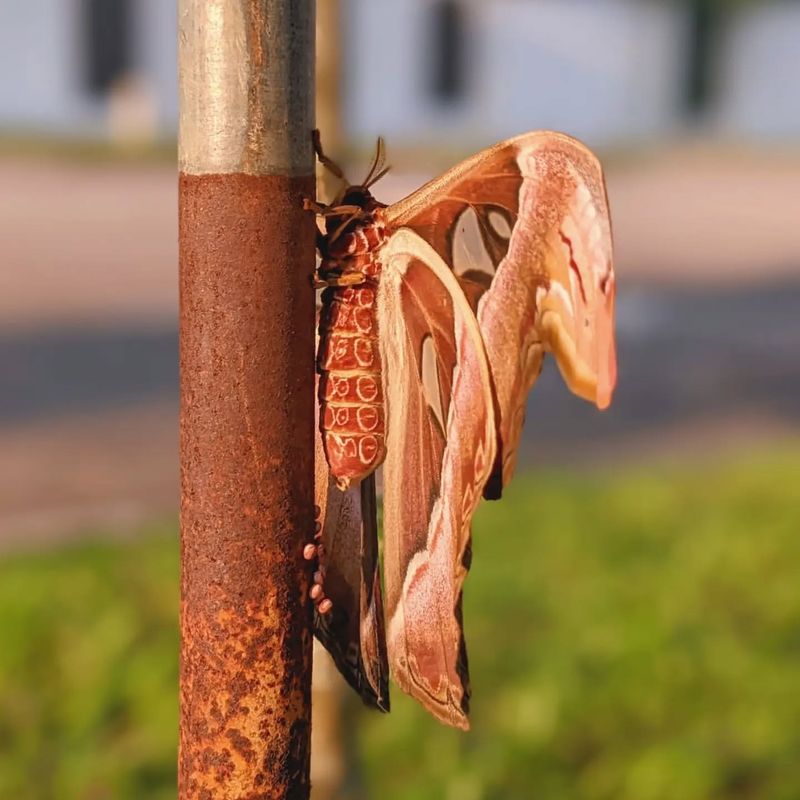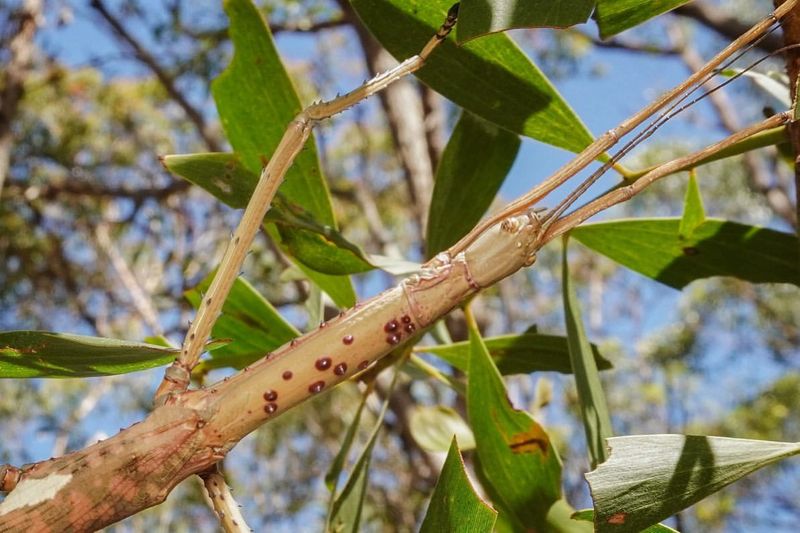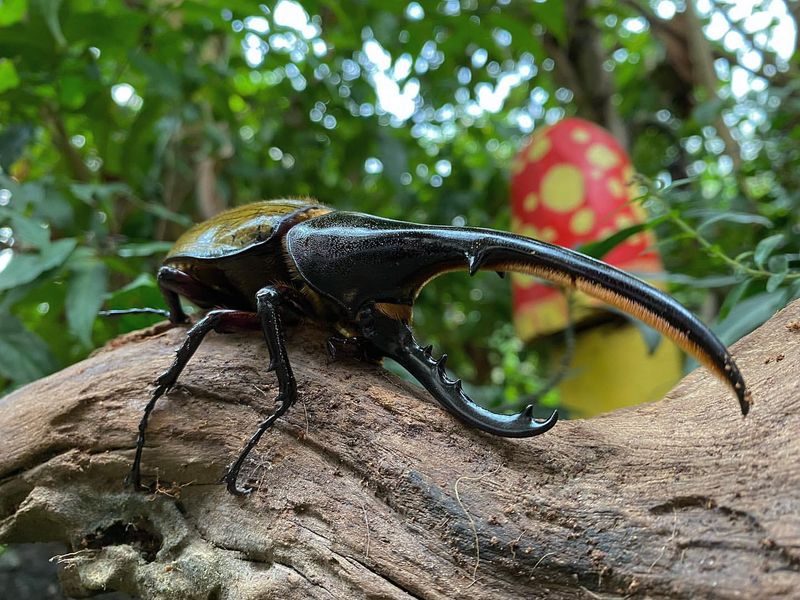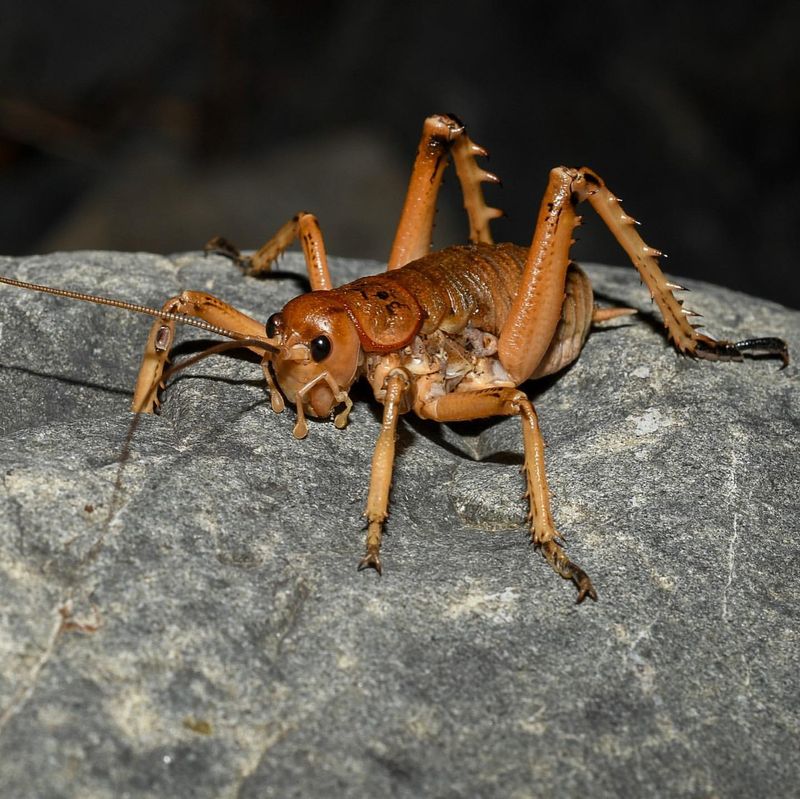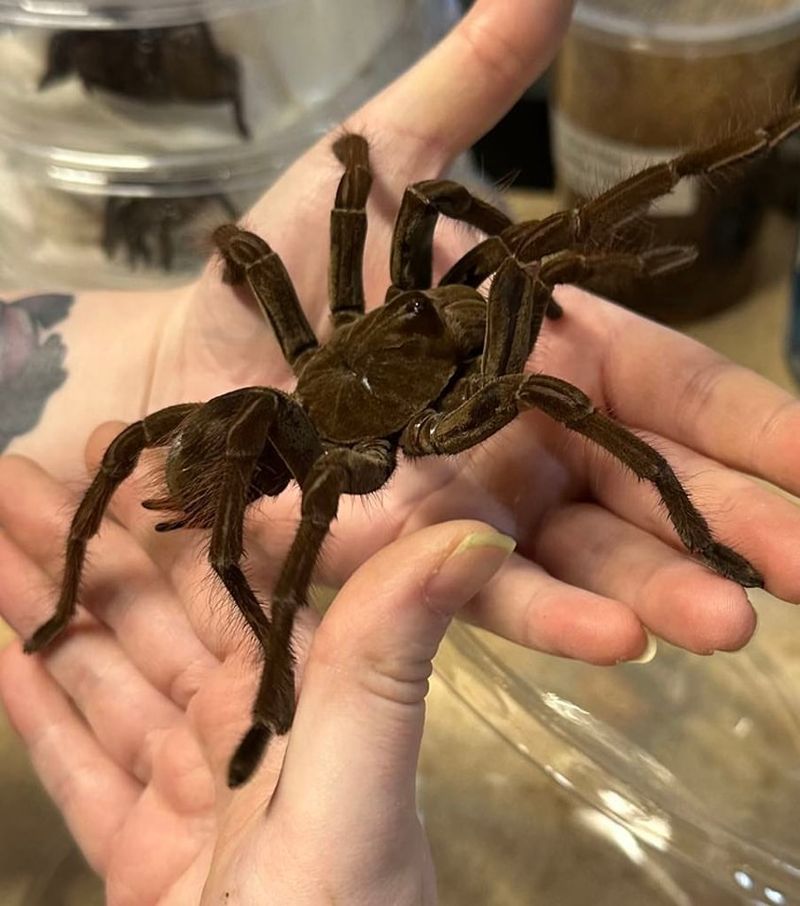📖 Table of Content:
When you think of insects, you probably picture tiny creatures scuttling underfoot or buzzing around your picnic. But what if I told you there’s a whole world of insects so massive they’d make your average ant feel like a speck of dust?
From beetles the size of your hand to moths with wingspans rivaling small birds, the insect world is home to some jaw-dropping giants that deserve a moment in the spotlight—preferably from a safe distance.
These aren’t your run-of-the-mill creepy crawlies. We’re talking about the Actaeon Beetle, a beetle so big it could probably bench-press smaller bugs, and the Giant Burrowing Cockroach, a hefty homebody from Australia.
So, whether you’re a fan of entomology or just want some fascinating trivia to share at your next party, let’s dive into the world of these oversized marvels. Warning: You may find yourself double-checking your ceilings for Atlas Moths by the time we’re done.
10. Actaeon Beetle
If beetles were bodybuilders, the Actaeon Beetle would undoubtedly win Mr. Olympia.
Found in the rainforests of South America, particularly in countries like Brazil, Colombia, and Venezuela, this beetle can grow up to 5 inches long and weigh over 3.5 ounces, making it one of the heaviest beetles on Earth.
Its shiny black exoskeleton is built like a tank, and the males sport impressive curved horns they use to spar with rivals during mating season. Surprisingly, this giant spends most of its life as a larva, munching on decaying wood and organic matter in the forest.
The larval stage can last for years, during which it grows to an astonishing size, sometimes reaching the length of a banana!
Despite their fearsome appearance, they’re harmless to humans and more interested in finding a mate than causing trouble.
9. Giant Burrowing Cockroach
Cockroaches don’t usually get a lot of love, but the Giant Burrowing Cockroach might just change your perspective. Native to Australia, this chunky insect can grow up to 3 inches long and weigh up to 1.2 oz, earning it the title of the heaviest cockroach in the world.
Unlike its urban cousins that skitter across kitchen floors uninvited, this species prefers a quieter life underground, burrowing up to 3 feet into the soil.
Known as the “rhinoceros cockroach” due to the ridges on its thorax that resemble a rhino’s armor, it’s a fascinating creature.
These cockroaches are surprisingly clean, spending time grooming themselves and their burrows. They’re also excellent recyclers, feeding on dry leaves and helping to decompose organic material in the soil.
8. Royal Goliath Beetle
The Royal Goliath Beetle truly lives up to its regal name. Hailing from the tropical forests of Africa, this striking beetle is one of the heaviest insects on the planet, with some specimens tipping the scales at over 3.5 ounces.
Males are particularly eye-catching, with their bold black-and-white patterns that look like they were hand-painted. Females are slightly less flashy but just as impressive in size, reaching lengths of up to 4.3 inches.
Their life cycle is fascinating, especially the larval stage. Goliath beetle larvae are voracious eaters, consuming decaying wood and fruit with such enthusiasm that they can grow as long and thick as a hot dog before pupating.
Despite their imposing size, these beetles are relatively gentle and have even been raised in captivity by enthusiasts.
7. Titan Beetle
If you ever find yourself wandering through the rainforests of the Amazon, you might encounter a true giant of the insect world: the Titan Beetle. Measuring up to 6.7 inches long, it’s the longest beetle on the planet, and its sheer presence is enough to leave a lasting impression.
Titan Beetles are often described as the “kingpins” of the beetle world, thanks to their robust bodies and powerful mandibles. In fact, their jaws are strong enough to snap a pencil clean in half or puncture human skin—though they rarely use them for anything other than defense.
What’s remarkable about the Titan Beetle is that scientists have never found its larvae in the wild. They’re believed to develop in rotting wood deep in the forest, growing to enormous sizes before pupating and emerging as the titanic adults we know.
Adult Titan Beetles don’t eat; their primary focus is finding a mate during their short lifespan, which lasts only a few weeks.
6. Giant Chinese Stick Insect
When it comes to blending in, the Giant Chinese Stick Insect is the undisputed champion. Growing up to 25 inches long, including its outstretched legs, it’s not just one of the longest insects—it’s a master illusionist.
Native to the forests of China and Southeast Asia, this stick insect’s slender, twig-like body and muted coloration make it nearly invisible among tree branches and leaves.
What’s fascinating about this insect is its survival strategy. Predators often overlook it entirely, mistaking it for a harmless stick. Even when threatened, it remains still, relying on its incredible camouflage to avoid detection.
Females are significantly larger than males and can lay hundreds of eggs during their lifetime. Their eggs even mimic plant seeds to further confuse predators, showcasing their remarkable evolutionary adaptations.
5. Atlas Moth
The Atlas Moth is the undeniable diva of the insect world, with its massive wingspan and vibrant colors that demand attention.
Measuring up to 12 inches across, it’s one of the largest moths on the planet and is named after the Titan Atlas from Greek mythology. Native to the tropical forests of Southeast Asia, the Atlas Moth’s wings are adorned with intricate patterns that resemble snake heads.
Interestingly, the Atlas Moth’s adult stage is all about reproduction. It has no functional mouth, so it can’t eat or drink; instead, it relies on the energy reserves it stored as a caterpillar. Its lifespan as an adult is only a few days, during which it focuses on finding a mate.
4. Titan Stick Insect
Australia is home to many oversized creatures, and the Titan Stick Insect is no exception. Measuring up to 22 inches long, including its legs, it’s one of the longest insects in the world.
Like its Chinese counterpart, this stick insect is a master of disguise, blending seamlessly into its surroundings with a body that mimics the texture and color of tree branches.
What sets the Titan Stick Insect apart is its behavior. Females are larger and more robust than males and are often found perched high in the treetops, laying eggs that drop to the ground and hatch months later.
3. Hercules Beetle
The Hercules Beetle is the ultimate symbol of strength in the insect world. Males can grow up to 6.7 inches long, with much of that length coming from their iconic horn, which they use for wrestling matches to establish dominance and attract mates.
Found in Central and South America, these beetles inhabit rainforests, where they play a crucial role in breaking down decaying organic matter.
Despite their fearsome appearance, Hercules Beetles are gentle giants, posing no threat to humans. Their larvae are equally impressive, growing up to 4.7 inches long and weighing nearly as much as an adult beetle.
Watching these beetles in action is like witnessing a miniature sumo wrestling match, with males locking horns and pushing each other in a test of strength.
2. Giant Weta
New Zealand’s Giant Wētā is a living relic from a time when dinosaurs roamed the Earth. This cricket-like insect can weigh up to 2.5 ounces, making it one of the heaviest insects in the world.
Found on small offshore islands, the Giant Wētā is nocturnal and spends its nights munching on leaves, fruits, and other vegetation.
Despite its intimidating appearance, the Giant Wētā is harmless and incredibly docile. Its weight and inability to jump well make it an easy target for predators, but it has managed to survive thanks to its isolated habitat.
1. Goliath Birdeater
While not technically an insect, the Goliath Birdeater earns its spot on this list for its sheer size and presence. Found in the rainforests of South America, this tarantula can weigh up to 6 ounces and boast a leg span of up to 12 inches.
Despite its name, it rarely eats birds, preferring to dine on insects, frogs, and small rodents.
The Goliath Birdeater is a master of intimidation, with its massive size and ability to produce a hissing sound by rubbing its legs together. However, it’s relatively harmless to humans, with venom that’s no more potent than a bee sting.
For arachnophiles, spotting this gentle giant in the wild is a dream come true, though it’s likely to send arachnophobes running for the hills.
